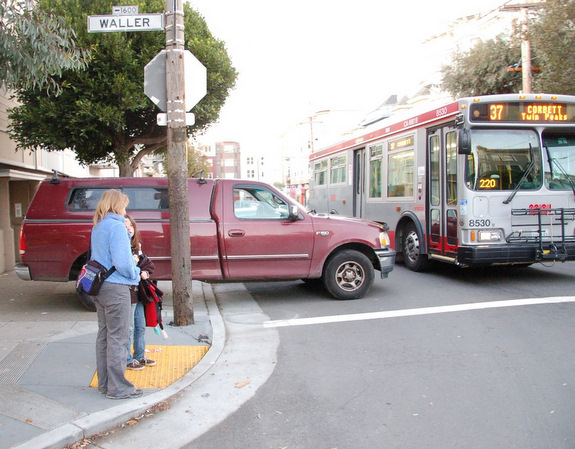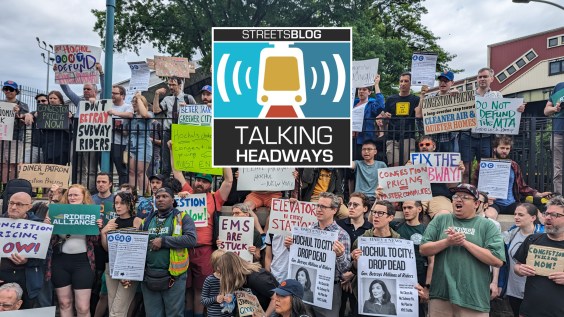Going into the weekend, here are a couple of shorties with the common theme of mental disconnect in the realm of transportation. For example, did you know that in San Francisco...
...fines are higher for biking on the sidewalk than blocking the pedestrian right-of-way with a car or truck?
And that's not even the weirdest bit of San Francisco's citation fine structure. Incoming SFMTA leader Jeff Tumlin started a mini-twitter storm when he pointed out the disconnect of it all:
SF fines:
— Jeffrey Tumlin 🏳️🌈 (@jeffreytumlin) November 22, 2019
Not paying $3 bus fare: $125
Not paying parking meter: $76
Blocking all buses and trams on Market St: $110
Should fines be scaled to impact? Income? https://t.co/u345RHvh16 https://t.co/sPZgwjMFjS
As one can see, he also links to an Atlantic article about fines in Finland. Since they fine motorists based on income, a Nokia executive was once hit with a speeding ticket for $103,000. That certainly makes more sense if the idea is to curtail unsafe driving and scofflaw parking by everybody, no matter how wealthy. So yes, fines should be pegged to impact and income, as Tumlin suggests.
Here's more on SFMTA's fine structure.
Meanwhile, the feds are boasting about...
...increasing "investment" in the nation's airports:
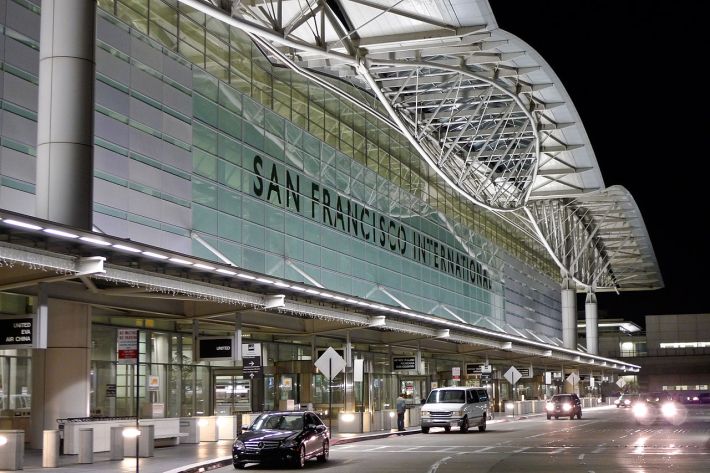
The Federal Aviation Administration put out a release today about its "infrastructure grant" to the nation's airports, including Bay Area and other California airports.
From the release:
U.S. Secretary of Transportation Elaine L. Chao announced today that the Department of Transportation will award $35.6 million in airport infrastructure grants to four airports in the state of California. With this announcement, the Trump Administration has invested a historic $10.8 billion in more than two thousand American airports across the United States for safety and infrastructure improvements since January 2017.
Amtrak, for comparison, got $1.5 billion in 2017 and $1.9 billion in 2018 from the feds to "subsidize" intercity passenger rail services. That's not just for stations. It's for everything. For the whole freakin' country.
Meanwhile, petroleum-industry-funded lobby groups such as the Heritage Foundation always dig at rail for taking "subsidies"/not being profitable. And yet when the feds give money to airlines, it's an important infrastructure grant and an "investment."
And speaking of disconnects, despite the recent...
...tragedy on BART, if you want to stay alive, keep riding BART
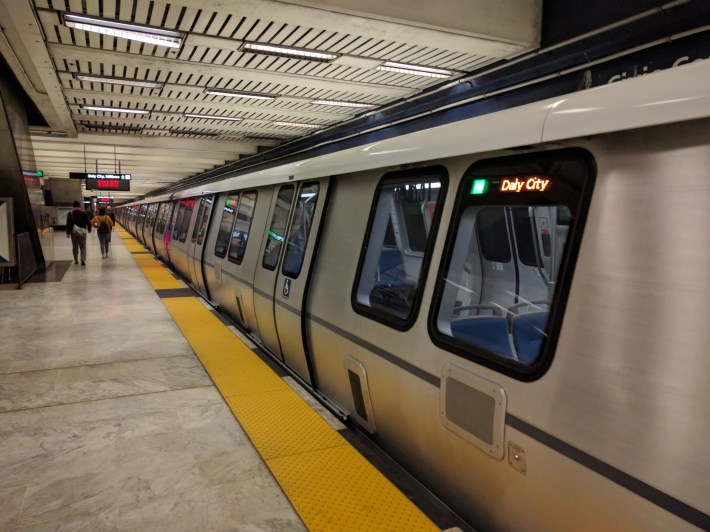
On Tuesday afternoon a man was murdered on a BART train headed to Warm Springs. From the looks of things the victim was killed when he tried to stop a robbery. The San Francisco Chronicle ran a detailed account from a witness on the scene.
From a BART statement about the incident:
Our hearts go out to the family and friends of the victim. This is a tragedy. Violent crimes of this magnitude are very rare on BART. In response to this tragedy BART General Manager Bob Powers and Interim Police Chief Ed Alvarez are working in conjunction with the police union to boost visible officer patrols throughout the system.
What happened was horrible, but BART is correct--these incidents are impressively rare. For perspective, there were 455 people killed getting around the Bay Area in 2016 on streets and highways (the most recent tabulation on the MTC's 'Vital Signs' web page). Only one person was murdered on BART that year. Wouldn't it be nice if the press talked about the carnage on our streets as much as they talk about violence on BART?
Here's a map of all the people who died in a car or were killed by a motorist while walking or biking in 2016:
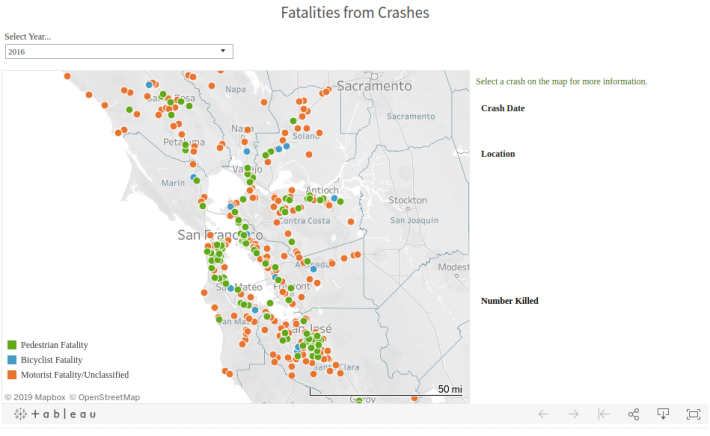
Certainly, the rise in violent crime on BART is of grave concern. But if you want to get from point A-to-B in the Bay Area and minimize your risk of getting killed or seriously injured, whatever you do don't switch from BART to driving. And if BART wants to save lives, yeah, increase patrols--but also add service during off-peak hours so more people who might otherwise take BART aren't forced to drive.
